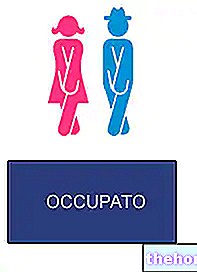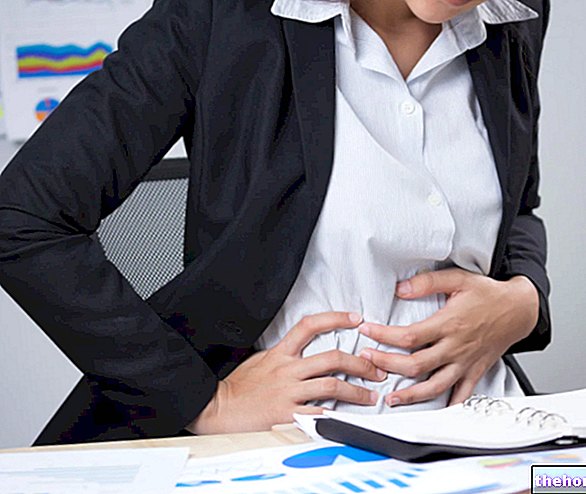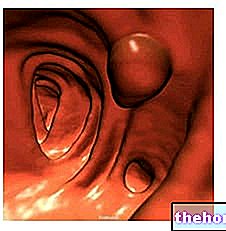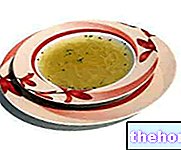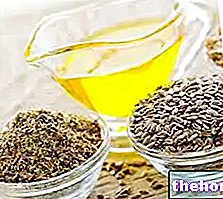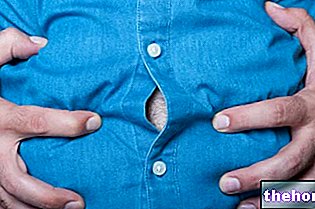For diarrhea we mean the expulsion of liquid and basically watery stools (sometimes with mucus and / or blood and / or pus). It can be accompanied by: cramps and pain, swelling and flatulence, nausea and vomiting.
If the discharges are more than 3 per day it is called dysentery. This can be acute or chronic.
The causes of diarrhea are the most varied:

- Infections and parasites.
- Chronic inflammatory autoimmune diseases (ulcerative colitis, Crohn's disease).
- Anatomical-functional alterations of the digestive system.
- Diet:
- Foods with irritants and / or stimulants (chilli, pepper, caffeine, alcohol, etc.).
- Lactose and gluten IF not tolerated.
- Excess of prebiotics and / or probiotics.
- Medicines.
- Alteration of the intestinal bacterial flora.
- Laxatives and enemas.
- Anxiety or fear or panic.
Diarrhea can cause dehydration, mineral loss, malnutrition, anal fissures, and inflammation of the hemorrhoidal plexus.
The material published is intended to allow quick access to advice, suggestions and general remedies that doctors and textbooks usually dispense for the treatment of Diarrhea; such indications must in no way substitute the opinion of the attending physician or other health specialists in the sector who are treating the patient.
: sometimes it reveals incorrect eating habits or the presence of a relevant emotional component.
- Discontinue use of laxatives or enemas.
- Discontinue unnecessary medications.
- Discontinue unnecessary supplements; pay particular attention to: chelating, thermogenic, creatine and osmotic.
- If diarrhea is acute, discontinue pre- and pro-biotic foods, supplements, and medications.
- If in doubt, remove foods that "may have triggered diarrhea".
- Combat dehydration and salt loss.
- Combat generalized malnutrition.
- Avoid foods that are difficult to digest (especially in the case of anatomical and functional alterations of the digestive system: cholecystectomy, resection of parts of the intestine, etc.).
- If diarrhea is acute, stick to a low-residue diet or low in fiber (especially non-soluble ones). Soluble isolated fibers are allowed which can increase fecal consistency.
- Eliminate irritating molecules; among these above all certain foods and drugs.
- Exclude lactose; in case of celiac disease, also remove gluten.
- Prefer astringent foods.
- Prevent emotional states of anxiety, fear and panic.
- Among the astringents we remember: lemon, unripe bananas, medlar, carob flour and tea.
- Foods that do not contain fiber are those of the I and II basic food group. Among these, the most suitable are: lean meat and fish products, poor in connective tissue (poultry, rabbit, fillet and loin of larger animals, sea bream, sea bass, cod, shrimp, etc.), very aged and non-fat cheeses (especially grana padano and parmesan cheese).
- Foods that do not have a laxative function; these include (in addition to the previous ones) also vegetable ones but with a reduced quantity of fibers or other prebiotic molecules: boiled potatoes, boiled rice, semolina, black and red blueberries, blackberries, apples, boiled carrots, strawberries, etc.
The most suitable cooking systems are:
- Poaching or boiling (also vacuum and pressure).
- Steam powered.
- Vasocooking.
- In the microwave.
- In the oven BUT in foil.
- In a pan MA over moderate heat.
- Frying.
- Stewing.
- Rare.
- Brazing.
Among these we remember:
- Maple tree.
- Carob.
- Altea.
- Strawberry tree.
- Rowan.
- Tormentilla.
- Acacia.
- Agrimony.
- Cinquefoil.
- Oak.
- Euphrasia.
- Walnut husk.
- Anise.
- Witch hazel
- Hawthorn.
- Rhubarb.
- Pimpinella.
- Alchemilla.
- Acerola.
Some anti-diarrhea drinks are:
- Witch hazel herbal tea: 2-3 grams per 150ml of water three times a day.
- Blueberry decoction: boil the blueberry fruits in a liter of "water for 5"; let it rest for another 5, then filter and consume two cups between meals. In children the doses will be halved.
- Marshmallow decoction: boil the drug in half a liter of water, until the liquid has reduced by two thirds of its volume. Leave to rest and finally filter.
- Infusion of Ceylon black tea: bring about two liters of water to a boil and leave the bags to infuse for 15-20 ". Drink about one liter a day.
- Blueberry, marjoram and mallow herbal tea: pour two tablespoons of herbal tea preparation into a liter of boiling water. Leave to infuse for 10 ", filter and drink throughout the day.
Usually, the causes of diarrhea that require pharmacological intervention are intestinal bacterial infectious or parasitic infections.
- Lactic ferments and probiotics: reconstitute the intestinal physiological barrier, which in turn is responsible for the fight against pathogenic bacteria in the intestine.
- Specific antibiotics: broad-spectrum antibiotics are not suitable as they also damage the intestinal bacterial flora. There is a specific category necessary for the treatment of dysentery.
- Antiprotozoa: against protozoal infestations.
- Spasmolytics: they do not act on the infection but reduce the symptoms; they are also widely used for other forms of diarrhea.
- Vegetable carbon: absorbs gases and partly excess liquids in the intestine.
- Anxiolytics: they work in cases of psycho-somatic diarrhea.

